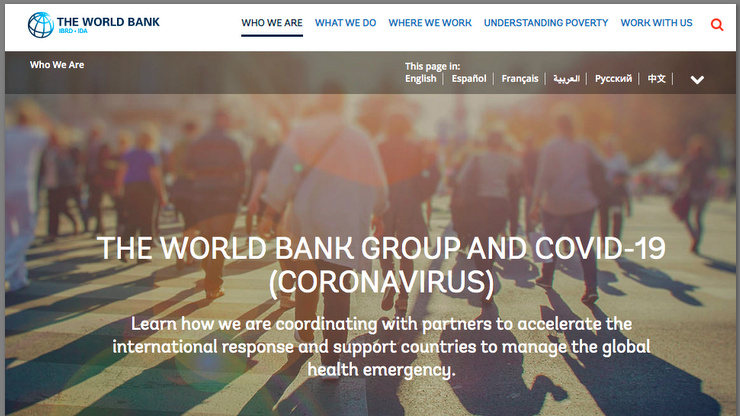Editor's note: CGTN's First Voice provides instant commentary on breaking stories. The daily column clarifies emerging issues and better defines the news agenda, offering a Chinese perspective on the latest global events.
After the World Health Organization (WHO) declared the COVID-19 a pandemic, fear began to show in world markets, as major U.S. stocks hit an extreme low since 1987. Many investors now fear that the world is plunging into another recession.
To what extent will the outbreak impact the world economy is yet to be known, but some economic historians have said previous contagions weakened certain economies and caused power shifts.
Victor Davis Hanson, a senior fellow at the Hoover Institution, compared the recent pandemic to the ancient plague of Athens about 2,500 years ago. "After the Athenian plague, Athens could still ward off a Spartan victory, but it lacked the resources to vanquish the Spartan empire and its growing number of allies."
However, there are positive signs that the pandemic would not have great impact on global economy.
Just when the WHO announced COVID-19 is now a pandemic, good news trickled out from China, which said new infections have reached their lowest levels in weeks.
On January 17, Ning Jizhe, director of the National Bureau of Statistics of China said China's contribution to the world economy in 2019 stood at around 30 percent, which means China's economy is playing a larger role in the healthy development of the world, even if the economies in the West have the probability to be hit hard by the pandemic.
Second, although many economists have pointed out that the capitalist economies are right at the end of a recovery cycle of 10 to 11 years, a major recession in the U.S. is very unlikely to happen.
Wei Sen, a professor of economics at Fudan University, said in an interview with Beijing News, "If we take a look at the major economy recession in post-war America, one may notice that the growth rate in the post-2008 recession period is very gentle and gradual. Moreover, as the unemployment rate has fallen to a new low, the growth in U.S. economy relies heavily on consumption."
Third, after the 2008 financial crisis, major economies around the world built mechanisms to prevent the next financial meltdown from happening. Although a few nations would act unilaterally, the majority of nations are still keen on standing together to cooperate and coordinate if a crisis is looming on the horizon.
"We are ready to take fiscal and monetary measures to aid in the response to the virus, support the economy during this phase and maintain the resilience of the financial system," G20 finance ministers and central bank governors said on March 6.
Other post-war economic, financial and banking institutions are also paying close attention to the pandemic.
On March 3, The World Bank announced that it is making available an initial package of up to 12 billion U.S. dollars in immediate support to help developing countries strengthen health systems and to work with the private sectors to reduce the impact on economies.

Screenshot of The World Bank website shows it is coordinating with its partners to manage the health emergency caused by COVID-19 pandemic.
Screenshot of The World Bank website shows it is coordinating with its partners to manage the health emergency caused by COVID-19 pandemic.
Last but not least, although the pandemic is unlikely to cause a major crisis in the world economy as a whole, it still could impact some developing countries in Africa as well as nations already in financial turmoil.
We do not know how long the pandemic will continue in the rest of the world. Some predict that when seasons change, countries in the northern hemisphere may get rid of the virus as temperatures climb. However, the situation in the southern hemisphere can't be predicted, as some people have already been infected in Australia.
Other uncertainties may include production obstacles that could affect the global supply chain.
Rana Foroohar, a global economics columnist and associate editor at the Financial Times, worried about the damage the virus could cause in the technology industry field. "Your phone has thousands of parts from all around the world. The path those parts take as they come together form a chain. If any link in the chain breaks down, say a screen from South Korea or a battery from Vietnam, then there would be no more phone. "
Viruses infect humans with physical pain, and fear leads to psychological panic. Both must be dealt with.
China is on its way to help its people and economy recover, and so will the rest of the world. It may not be fast, and it may take long, but we need to have confidence in ourselves. What we need to do right now is to raise the morale of the public as the British government once did in its famous pre-war poster - "Keep calm and carry on. "
(Script writer: Xiong Tong)
(If you want to contribute and have specific expertise, please contact us at opinions@cgtn.com)